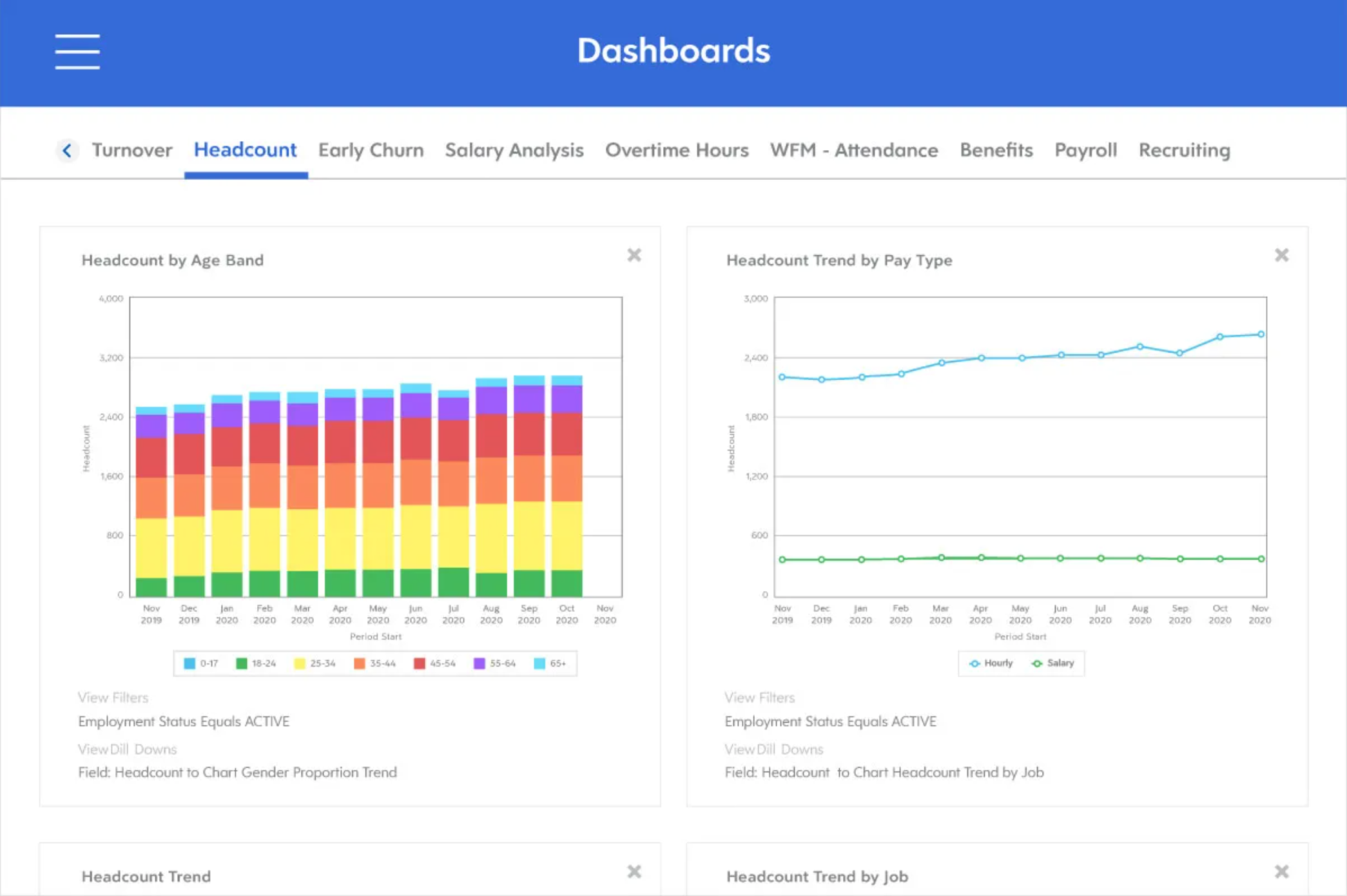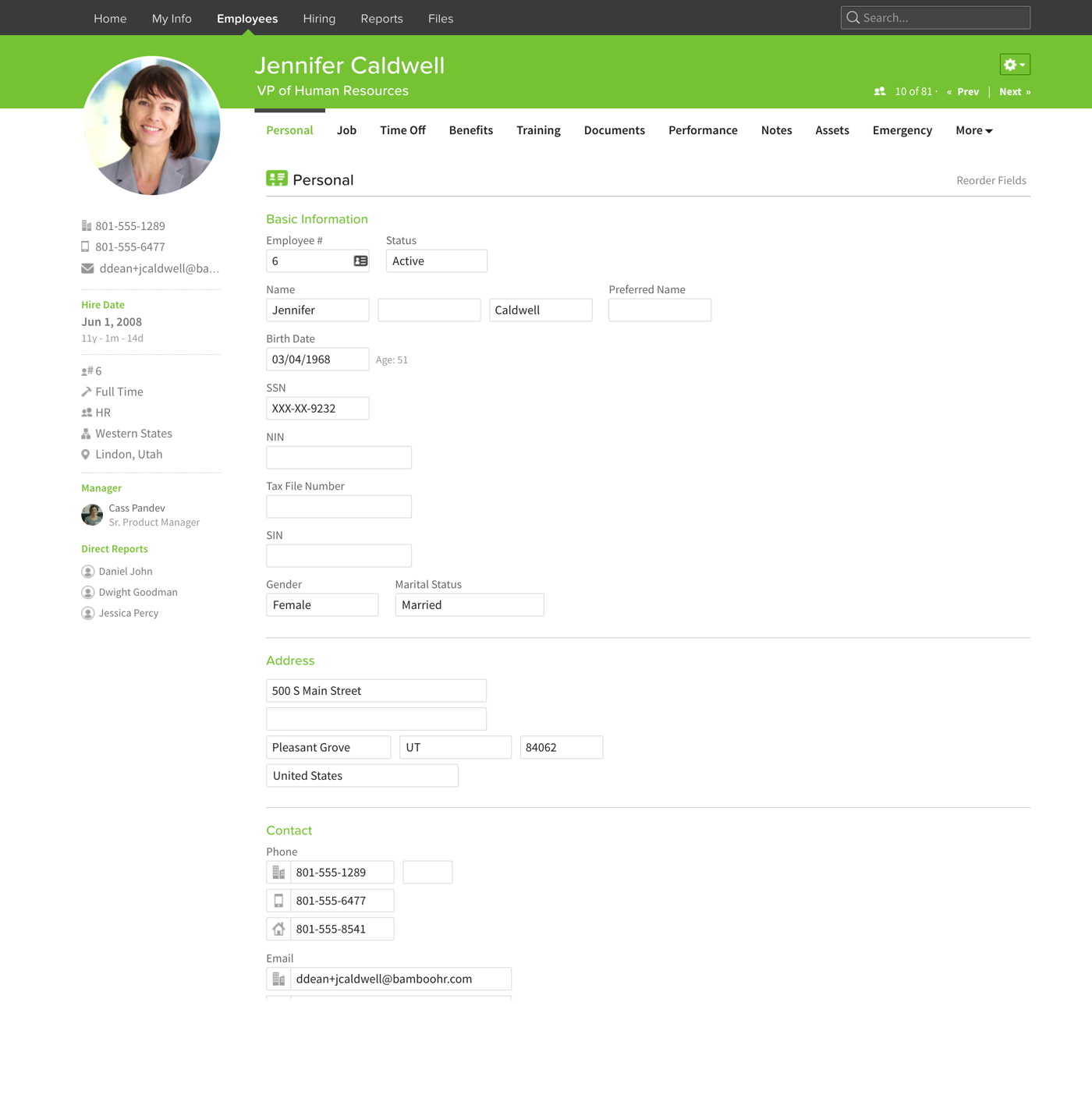Here’s something of an age-old question when it comes to HR technology and recruitment software. What’s the difference between HCM, HRMS, and HRIS? The terms seem to get thrown out almost interchangeably by HR practitioners and software vendors alike.
It’s gotten to the point that you could probably walk up to a set of HR professionals, ask them separately, and you’d get a different answer from each of them. As for software vendors, some of them will switch around between HCM and HRMS depending on which term you prefer, or which one you were looking for in the first place.
So, let’s dig in and settle this once and for all. Here are the main differences between HRIS, HCM, and HRMS, according to our experience, research, and expert council.
HRIS vs HCM: The Key Distinction
Let's clarify the HRIS vs HCM comparison: HCM isn't just software; it's a comprehensive approach to managing human resources, encompassing both software tools and HR philosophy.
Regardless of whether software solutions are involved, HCM is about optimizing every stage of the employee lifecycle. The idea is that broader business needs are considered at every point, whether it’s talent acquisition, performance management, or succession planning.
HRIS and HRMS, on the other hand, are acronyms that refer specifically to software systems, the difference mainly being in the set of features and processes they’re able to accommodate.
Now that we know that, let’s take a more in-depth look at each category. Between all the features, the nuances can get a bit confusing, so feel free to review the following infographic and then read on.
.png)
What is Human Capital Management Software (HCM)?
For a software platform to be able to call itself an HCM, it should aid with the handling of any stage of the employee lifecycle. This would include core administrative support, such as benefits and an employee self-service portal, as well as features that any decent HR software should have, including reporting, analytics, and workflow automation.
Then, the HCM part is about supporting the idea of managing the workforce with strategic business goals in mind. This is about making sure that each employee is the best asset they can be for the business, so it will include learning management, compensation planning, performance management, and contingent workforce management.
And of course, since human capital management is about optimizing all stages of the employee lifecycle, proper HCM suites should include workforce planning, recruitment (hiring and applicant tracking), succession planning, and onboarding.
Now, the thing that really brings home the point of calling it human capital management as opposed to workforce management is that these features put together should be strong in the employee data management side of things. They should be able to generate insights about each employee and team that can help with making decisions about the business.

What is an HRIS (Human Resource Information System)?
Now that we’ve defined what HCM is in both software and business practice, let’s go to the simplest part of the HR software spectrum. A human resource information system is software designed to manage the core HR functions essential to nearly any business.
Typically, most HRIS systems will include the following:
- Employee database
- Leave & absence management
- Recruiting & applicant tracking system
- Benefits administration
- Compensation management
- Employee self-service portal

What is an HRMS?
If an HCM system is everything in HRIS software, plus the HCM features like employee performance, onboarding, and workforce planning, HRMS features cover all this, plus payroll processing, budgeting, and time and labor management.
In other words, a human resources management system is supposed to be a one-stop shop when it comes to HR software needs. As new trends in technology emerge, the best HRMS software vendors are also incorporating new concepts such as employee engagement, rewards & recognition, and social intranet functionality.
Nevertheless, you could definitely say the same thing about certain vendors with the word HCM in their names, like Paycor, Oracle HCM Cloud, or Dayforce HCM.
Companies like these also try to streamline training and development, improve employee retention, and help with maintaining an HR knowledge base, among other things. They simply tend to approach each tool with more of the HCM philosophy in mind: robust metrics and insight generation that drives strategic decision-making.

Why Do These Terms Seem Interchangeable in HR Software?
The reason these terms seem interchangeable when discussing or buying HR software is that everyone has a different opinion or unique perspective on where the line ends between each category.
One of the primary factors driving this situation is that HCM is often associated with large enterprises. Many HR professionals think it’s either for big companies or those in need of international capabilities. However, some HCM solutions can very well work for smaller organizations or those with operations in just one country.
The other factor is that some of the top vendors often offer all three types of software. They just do it with module-based pricing, and will probably come up with a unique way of naming each plan or solution. Nevertheless, what they’re often doing is offering a core HRIS, and then upgrades to HCM capabilities or a full-on HRMS.
What’s in a Name?
Was that all a bit confusing? That’s because it is, but that’s the issue sometimes with names in software. Technology moves fast, industries and people are constantly changing, so it’s somewhat expected for names to become less able to encompass something as complex as an HR software category completely.
Because of that, it’s best not to get caught up with names when trying to choose a solution for your business. Instead, think of your particular needs and use cases, and how you want to approach HR strategy in the short and long term, and let that determine what kind of product you need.
Once you and your team have a good understanding of that, feel free to visit our pages on the best HR solutions, top HCM vendors, or even the best free HR software.



























